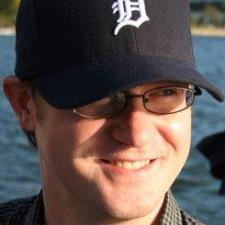I want to start with what I think are a few misconceptions that may be making this more difficult. People can conceptualize a future, not matter how they view time. If we think of a circle to represent cyclical time, there is still a path ahead of you. Many people worried about winters and illness and starvation, they just knew they had to worry at a certain part of the circle. There are caches where people hid tools for them to come back to as they lived a nomadic life. They did conceptualize a future.
Second, they did have a fairly precise understanding of time. They could track the calendar by the solar events, like the solstice and equinoxes, as well as lunar phases. The stars also change, unless you are exactly on the equator, from season to season. But it wasn't just on a year scale that they understood time. They were more familiar with the sun's position than you or I because we have clocks. Instead of hours, the knew sunrise, sunset, and midday very well.
Third, some of them did have histories. The Maya, for example, understand time to be cyclical and are one of the few Native American groups to have writing. We know the names of dozens of rulers and cities and some of the wars and famines because of their writing, but time was still cyclical.
Now, to the meat of your question. You are partially right by saying history repeats itself, but let's hold off on that for a second. Circles are, by definition, identical to all other circles with the only difference being size. There is a very big circle in time full of smaller circles. All of the circles are the same, but some are the breadth of the universe. Some are a day or a year. Some of are life or the rise and fall of a city.
When people view time as cyclical, it isn't a denial of growing older, but of seeing each day as small version of what happens each year, which is a small version of what happens each life, which is a small version of what happens to the universe. Yes, a man may loose his eye, but that isn't part of the day's cycle; it's part of his life's cycle. His day started and ended with sleep, just as his life starts and ends with the gods, just as the universe starts and ends with what he believes it ends with.
There will be variations in the circle. A detail here or there will be different. The scale is, of course, different, but the main outline is the same, just like the Hero's Journey can be plotted on to an episode of Friends, the entire Lord of the Rings trilogy, or a historical life.
So, cyclical concepts of time aren't a belief it's groundhog day. It's seeing a beginning, (culturally detailed) middle, and end that starts the beginning again. Does that make sense?





